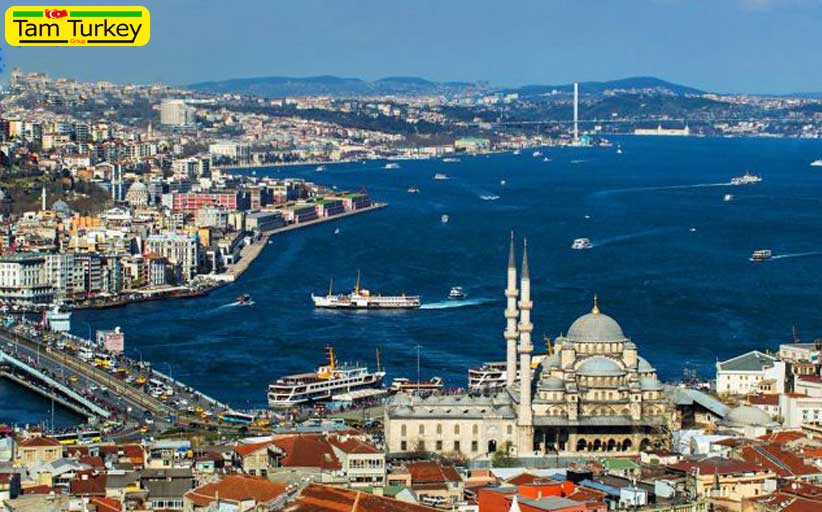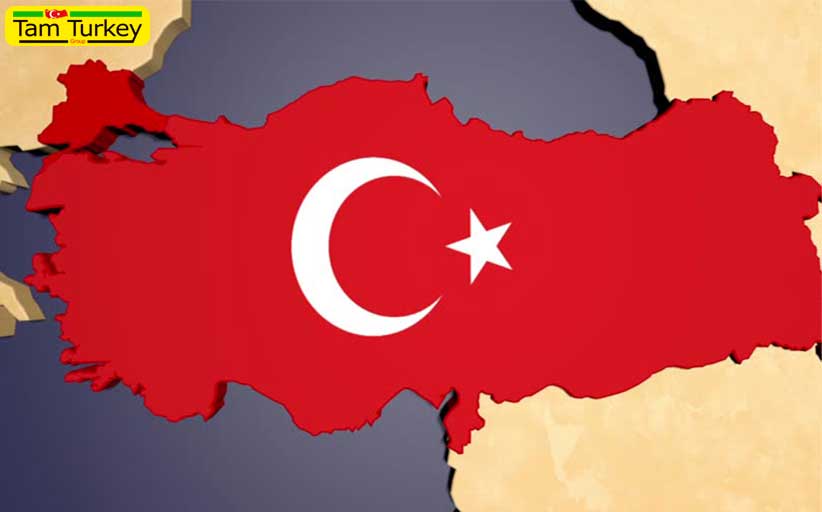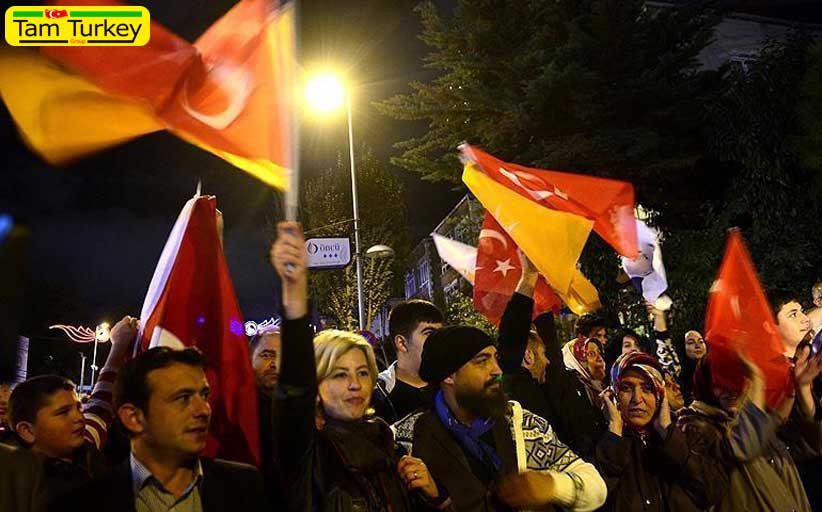People and language of Turkey The language of most people in Turkey is Istanbul Turkish, but Kurdish, Armenian, Zaza, and Azerbaijani languages are also used among ethnic groups. Smaller ethnic groups such as Laz, Arabs, Georgians and Circassians have added to the linguistic and cultural diversity of this country.
Turkish Kurds live mostly in the southeast and east of the country. The official language of this country is Turkish. Smaller ethnic groups in Turkey include: Armenians, Azerbaijanis (northeast), Laz (north) and Arabs (south).

A genetic study in 2001 through the analysis of DNA haplogroups in Turkey showed that Turks and Kurds, along with Armenians, Iranians, Jews and Lebanese and other groups living on the Mediterranean coast (both in the east and in the west), probably have a common ancestor. As a result, today’s Turks, Kurds and Armenians may have come from these groups. Another genetic study in 2003 showed that the Anatolian Turks have no special genetic relationship with the Mongols despite their linguistic kinship (in the Turkic language family) and historical neighborhood. So that the amount of genetic differences between Turks and Germans with the three main Mongol groups was the same.

In another study in 2003, 54 different haplotypes were identified on 523 Igreg chromosomes (which only show paternal lineage) from residents of 90 different cities in Turkey, the majority of which (94.1%) are common haplotypes in Europeans and neighboring Middle Eastern peoples. . Haplotypes associated with Central Asians are in the minority with only 3.4%, Indians 1.5% and Africans 1%. The considerable diversity of haplotypes among the Turks testifies to the important role of Anatolia both as a recipient and as a source in the gene flow between different regions. Different estimates have been made about the genetic contribution of the migration of Central Asian Turkic speakers to the Anatolian region. According to one of the studies on the Egreg chromosome, this share is about 10%, and according to another study on mitochondrial DNA and the Egreg chromosome, it is about 30%. Although the gene flow between Anatolia and Central Asia has probably taken place several times in prehistoric times, the unknown number of these populations and the number of these periods is a big problem for determining the genetic contribution of the migration of the Ughuz Turks to Anatolia in the 11th century AD. According to some studies, determining the amount of haplogroups specific to Asia such as C-RPS4Y and O3-M122 is the best method to determine the dimensions of this migration and its genetic contribution in the current population of Anatolia. These genetic sequences were found in only 1.5% of Turkish people in one study, while in one study they were 18% on 13 Central Asian tribes and 33% in another study on 49 Central Asian tribes. It seems that the significant increase in the population of Anatolia in the Bronze Age, which reached 12 million people during the Roman Empire, has reduced the influence of the migration of the Seljuks and other Turkic speakers from Central Asia.

In another study in 2003, 54 different haplotypes were identified on 523 Igreg chromosomes (which only show paternal lineage) from residents of 90 different cities in Turkey, the majority of which (94.1%) are common haplotypes in Europeans and neighboring Middle Eastern peoples. . Haplotypes associated with Central Asians are in the minority with only 3.4%, Indians 1.5% and Africans 1%. The considerable diversity of haplotypes among the Turks testifies to the important role of Anatolia both as a recipient and as a source in the gene flow between different regions. Different estimates have been made about the genetic contribution of the migration of Central Asian Turkic speakers to the Anatolian region. According to one of the studies on the Egreg chromosome, this share is about 10%, and according to another study on mitochondrial DNA and the Egreg chromosome, it is about 30%. Although the gene flow between Anatolia and Central Asia has probably taken place several times in prehistoric times, the unknown number of these populations and the number of these periods is a big problem for determining the genetic contribution of the migration of the Ughuz Turks to Anatolia in the 11th century AD. According to some studies, determining the amount of haplogroups specific to Asia such as C-RPS4Y and O3-M122 is the best method to determine the dimensions of this migration and its genetic contribution in the current population of Anatolia. These genetic sequences were found in only 1.5% of Turkish people in one study, while in one study they were 18% on 13 Central Asian tribes and 33% in another study on 49 Central Asian tribes. It seems that the significant increase in the population of Anatolia in the Bronze Age, which reached 12 million people during the Roman Empire, has reduced the influence of the migration of the Seljuks and other Turkic speakers from Central Asia.
Part of the Turkish descendants of Turkey are from the Seljuk Turks of Ghaz; After the defeat of the Ghaznavids in 429 AH, the Seljuq Turks, led by Tughrel Bey, made the city of Neishabur their capital, in 433 they made the city of Ray the center of their government, then made Isfahan the main seat of their government and made Hamadan their summer capital. . Then, under the leadership of Alp Arslan, the Seljuks captured Anatolia in the Melazgerd war with Byzantine Emperor Romanus IV, and the land of Asia Minor up to Konya became part of the Seljuk Empire. The Seljuk Turks, who entered the Iranian plateau from Central Asia and conquered the cities of Iran, had established their rule in Shahrei, settled in these places and in Azerbaijan, and by providing many armies from Azerbaijan, they conquered Anatolia and settled in this region. Settled after conquering the Byzantine Empire (Eastern Rome), they added this region to their empire and established the Ottoman Empire there since the rule of the children of Osman (the name of one of the Anatolian Turkish rulers).
Are you thinking of buying a house in Turkey?
Get in touch with our consultants.
905065888988
Real estate sales consultant in Turkey Renting a house in Turkey
Contact via WhatsApp














































































































